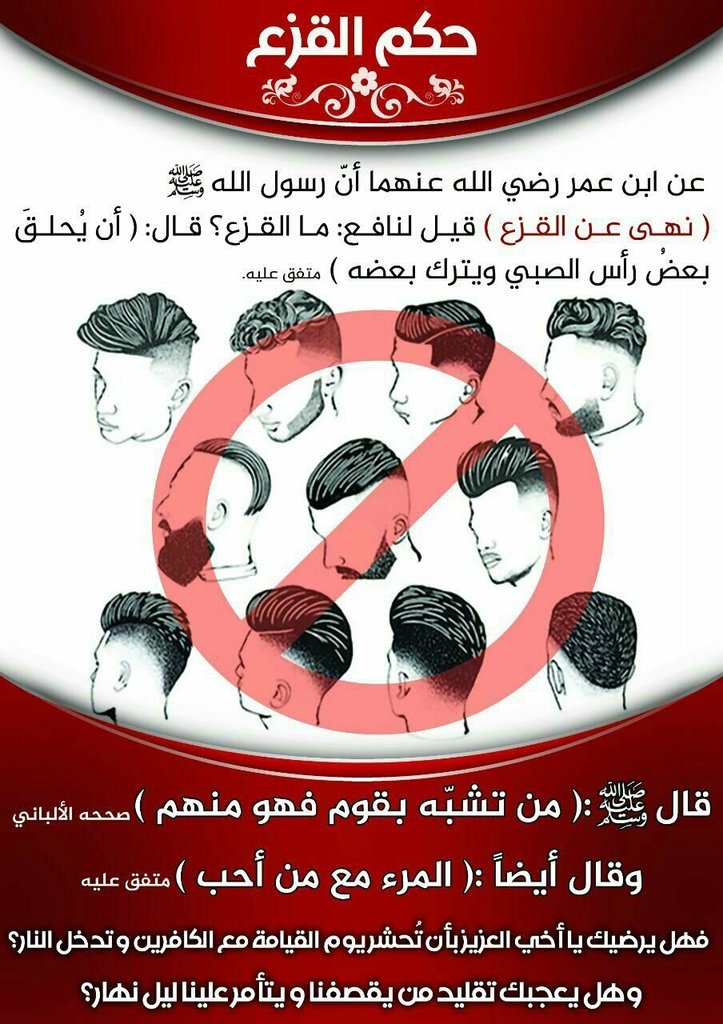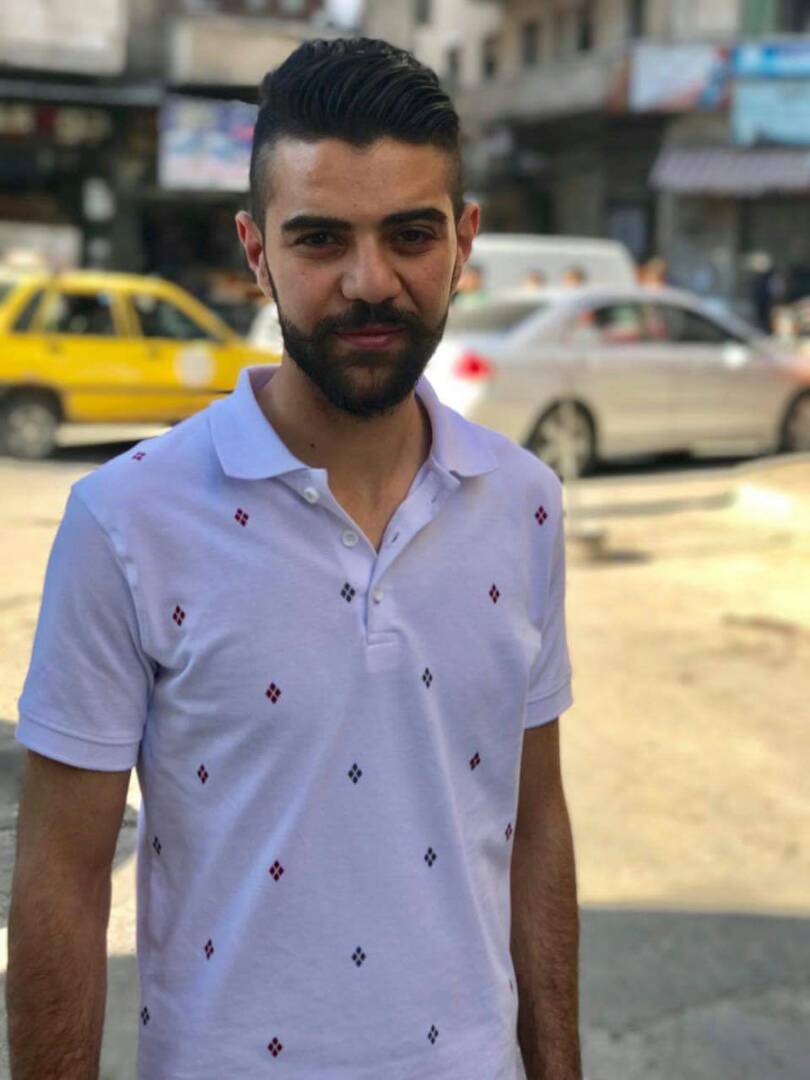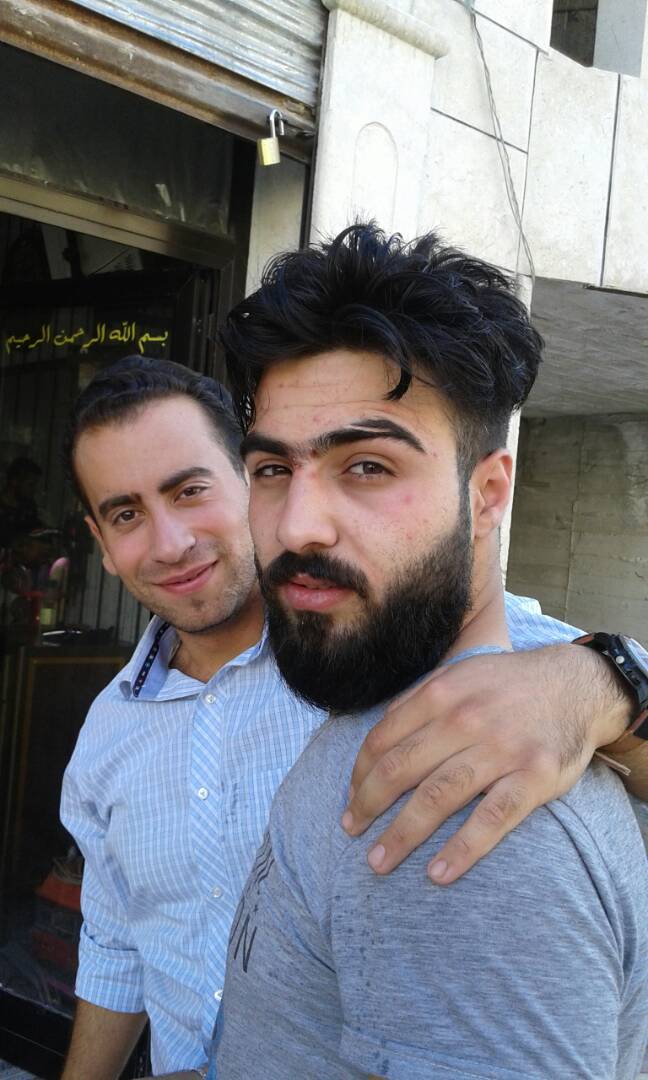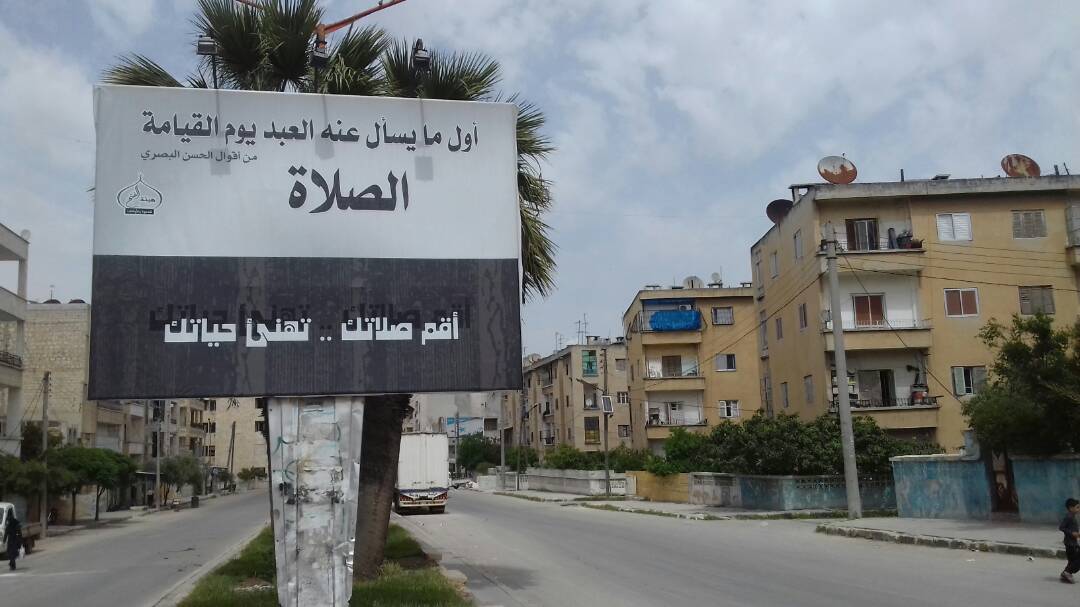Syrian Men Don't Care That Islamists Don't Like Their Haircuts
By:
Alaa Kawsara knows some people don’t like the way he styles his hair, but while he lives in opposition-held Syria, surrounded by conservative Islamists with a more austere take on religion, he’s like most other 22 year olds when it comes to what others think about his dress: He doesn’t give a shit.
“Because I like it,” he told ATTN: when asked on the streets of Idlib City why he cuts his hair in a way that might cause trouble.
“It makes me look good.” He’s seen the flyer making the rounds on Facebook declaring his choice in fashion is contrary to Islam, “but I don’t care,” he said. “I only do what I like to do.”

However, a flyer — all over Facebook and the province of Idlib — says he’s going to hell for it.
“Does it satisfy you, oh dear brother, that you will, on Judgment Day, be packed with the kufr (infidels) and enter the fire?” states the flyer, which cites a hadith, or saying of the Prophet Mohammed, that prohibits shaving only part of one’s head. “Are you pleased by the custom of those who bomb us and tyrannize us from dawn to dusk?”
 /Rajaai Bourhan
/Rajaai Bourhan
But men in Idlib can take or leave Islamists’ dictates on dress. As Kawsara told ATTN:, despite the ostensible prohibition on his style of haircut, all he’s likely to ever face is a talking to. “Personally, I haven’t had any problems, but friends of mine faced a situation where people told them that this haircut is banned in Islam,” he said. They kept their cuts and moved on.
Women are generally not afforded the privilege of just ignoring Islamists' advice.
The hijab, a traditional headscarf, is required in public — and going outside without one is a crime in Idlib, one rarely enforced if only because cases of women challenging the dictate are unknown.
Muhammad Abo Zaid, a spokesperson for the conservative Ahrar al-Sham, claimed the powerful militant group doesn't actually support the requirement but hasn't made it an issue because of the delicate politics in opposition-controlled areas. “Some hard-line organizations have decided to impose the hijab and confronting them over this decision will put the balance in danger so we quit trying,” he said. The group blames Syria’s “revolutionary state” for the imposition, saying such issues should be decided democratically after President Bashar al-Assad is removed from power. “But the hjiab, in general, is a matter of culture here in Idlib,” Abo Zaid added.
But women are just as defiant as men. While few may go out without a hijab, many do wear makeup — despite the province being littered with flyers declaring it a sin — and the streets of Idlib City are lined with shops openly selling cosmetics.
The province of Idlib had a reputation for conservatism prior to the outbreak of the Arab Spring in 2011, when hundreds of thousands of Syrians took to the streets in unprecedented protests demanded democratic reforms — and, after being met with snipers’ bullets, the fall of hereditary dictator and his regime. Most Syrians outside of Idlib had never been there; now the worst war of the 21st century has flooded the province with refugees from all over, many with more liberal takes on religion.
A coalition of Syrian rebels, ranging from the nationalist Free Syrian Army to the jihadist Tahrir al-Sham, captured Idlib City from the Syrian government in March 2015. After the fall of Aleppo in December 2016, it is the last major city in rebel hands, home to thousands displaced by fighting elsewhere.
 /Rajaai Bourhan
/Rajaai Bourhan
Marwan Hisham, a Syrian journalist based in Turkey, told ATTN: that the bias against these partially shaved haircuts existed before the 2011 uprising, though they were still quite popular. Preachers “always criticized” those styles, Hisham said, and “for some non-religious people those haircuts were considered ‘gay,’ so they’d look down on people having them.”
The flyers around Idlib today are not a new development, then. “It’s writing down what was already orally conveyed,” Hisham noted. “That’s the new thing.”
Mou’az Iz Aldeen is a barber in Idlib City. He’s familiar with the claim these haircuts are forbidden in Islam, “but I have to do what the customer asks.” He told ATTN: that “nobody” bothers him because of it, but also that “those haircuts aren’t that popular.”
 /Rajaai Bourhan
/Rajaai Bourhan
When anti-government rebels captured the city of Raqqa in 2013, “almost nothing changed” in terms of dress. “They didn’t force anyone to cut their hair in any certain style,” Hisham said, “but the mujahideen trend [of very long hair] just spread. Many young people wanted to look like them suddenly.” Still, not even the Islamist rebels, including al-Qaeda’s once-formal affiliate in Syria, enforced Islamist dress — at least for men.
That changed when the rebel coalition was forced out of Raqqa a year later by the self-styled Islamic State, the terrorist organization ultimately imposing “Islamic” dress on the city’s 250,000 residents.
“When I went to Aleppo in the summer of 2015,” by contrast — a city at the time primarily controlled by nationalist militants associated with the Free Syrian Army — “people cut their hair and shaved however they liked with no problem.”
However, while rebels in Raqqa “never really forced women to cover their hair,” according to Hisham, “you’d see less women unveiled,” adding, “in Aleppo and its countryside, I didn’t see a single women unveiled.”
He explained, "these areas were already conservative.” But they have become more so since the war, which has killed over 400,000 Syrians and, according to the United Nations, forced at least 5.5 million to flee the country while displacing another 6.5 million within it.
Those who stayed — often those who lacked the means to escape — have either become more religious in the face of regime, Russian, and U.S. airstrikes, or had to adapt, particularly if they are women, to the standards of what, after six years of war, is a more conservative society.
